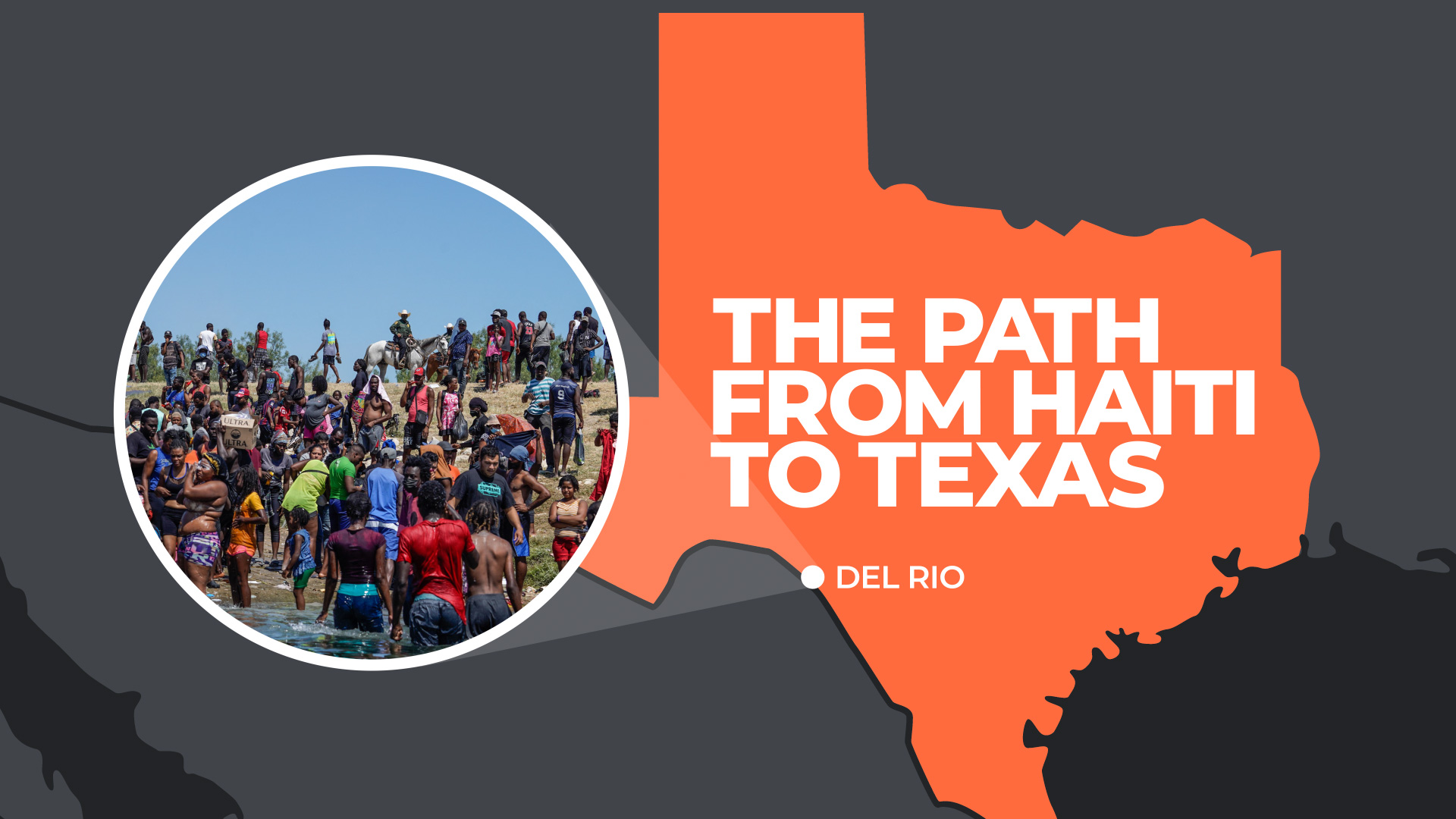
FOR YEARS, WE’VE SEEN PHOTOS LIKE THIS NEAR THE TEXAS-MEXICO BORDER. MIGRANTS CROSSING THE RIO GRANDE FOR A CHANCE AT A NEW LIFE.
BUT THE FACES OF THE MIGRANTS IN THIS PARTICULAR BORDER TOWN- DEL RIO TEXAS- ARE CHANGING…WITH A SUDDEN INFLUX OF HAITIANS.
HOW DID HAITIAN MIGRANTS GET TO DEL RIO IN THE FIRST PLACE?
THE FLORIDA COAST IS THE CLOSEST ENTRANCE TO THE US. BUT MANY HAITIAN MIGRANTS ARE OPTING TO ENTER TEXAS, THROUGH MEXICO…WHICH MEANS ADDING THOUSANDS OF MILES TO THEIR JOURNEY.
HERE’S IMMIGRATION LAWYER, ANDRES MEJER.
Andres Mejer: “I can only assume Haitians perceive it as easier to come in through Texas, than through Florida. Is that a reality? I don’t know. But the numbers certainly indicate that people believe that to be true.”
THE JOURNEY OFTEN IT BEGINS IN SOUTH AMERICA.
A HAITIAN PASSPORT IS CONSIDERED ONE OF THE WEAKEST IN LATIN AMERICA. MOST COUNTRIES DON’T OFFER VISAS TO HATIAN TRAVELERS.
ONE EXCEPTION IS BOLIVIA…WHICH DOES OFFER A 90-DAY VISA UPON ARRIVAL.
BUT FOR THE MAJORITY OF HAITIAN MIGRANTS, IT’S BEEN A YEARS-LONG PROCESS…
MANY LEFT THE COUNTRY AFTER AN EARTHQUAKE KILLED 200-THOUSAND PEOPLE IN 2010.
MANY HAITIAN MIGRANTS MOVE TO SOUTH AMERICA– TAKING JOBS IN PLACES LIKE BRAZIL, ECUADOR AND CHILE….WHERE THEY KNOW THEY CAN GAIN TEMPORARY LEGAL STATUS. THEY FOLLOW THE WORK UNTIL IT EITHER DRIES UP OR THEY DECIDE TO CONTINUE ON TO THE MEXICO BORDER.
FOR DECADES, HAITIAN MIGRANTS HAVE RELIED ON WALKING AND BUSES ALONG THIS WELL WORN PATH… MORE THAN 4 THOUSAND MILES LONG.
IT’S A DEMANDING AND DANGEROUS JOURNEY…WITH NO GUARANTEES OF ENTRANCE OR ASYLUM.
Alejandro Mayorkas, Department of Homeland Security: “The perilous journey, is not the journey to take. One risks one’s life, the life of one’s loved one’s for a mission that will not succeed.”
DESPITE THE ANNOUNCEMENT OF MASS DEPORTATIONS FROM TEXAS, MEJER EXPECTS HAITIANS TO CONTINUE MIGRATION TO THE US – MEXICO BORDER.
Mejer: “To get to the United States, they need a visa. To get into Mexico, it’s easier.”









